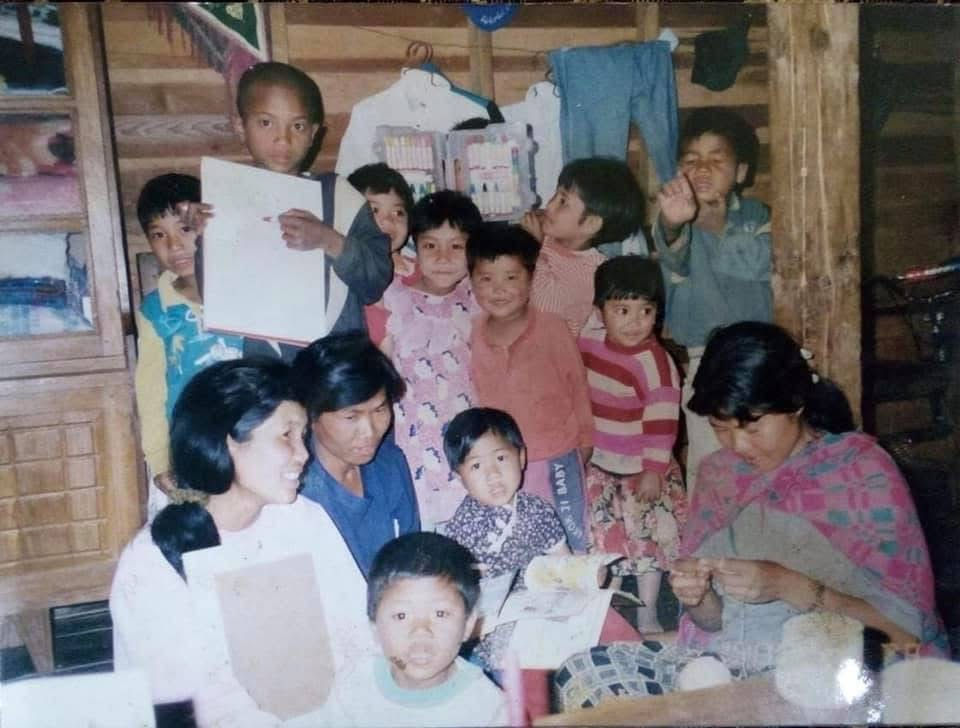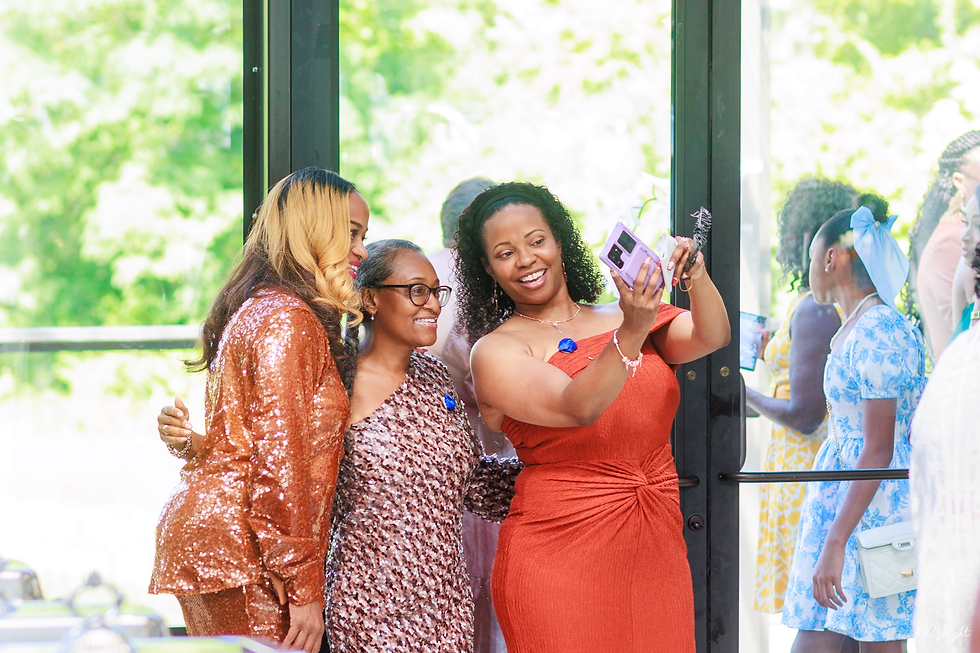It's Just Whipped Cream
- Leila Breton

- Oct 9, 2020
- 5 min read
Updated: Jan 24, 2023
I’m a bridal designer, but it wasn’t my childhood dream. I didn’t start sewing for my Barbies when I was little. I didn’t own Barbies. I was too busy riding my bike, and playing outside, getting skinned knees, and dreaming of one day becoming a rock star. Oh, yes. You read that right. I was writing songs all the time, putting them to music I made up in my head.
I started sewing because my body had shifted after having kids, and I started looking at my body in a negative light, despite the fact that I gave birth to two babies. I didn’t want to feel self-conscious in my clothes. I had two small children and I didn’t want to be pulling and tugging on my clothes, sending them the message that I felt there was anything wrong with my body. That’s when I started sewing and tailoring all of my clothes. I didn’t want to hide my body.
I have always wanted to be present, and I don’t think we can be present when we’re pulling and tugging at our clothes.
It pulls you out of the moment you’re in, and, subconsciously, people notice. We think that people who are pulling and tugging are nervous and unsure. How can we make a strong, positive impression (though I know the first impression we give off is not necessarily who we are) when our body language is screaming we are not comfortable.
There is so much that is lost on people when we walk in wearing uncomfortable clothes. Just imagine that outfit that makes you feel amazing. Think about why it makes you feel comfortable. I’m going to guess the reason is mainly because it fits. There are so many looks and design details wrongfully reserved for certain body types. My theory is if it’s something you’re drawn to, and it’s made to the proportions of a person, anyone can wear anything.
But we’re not used to that. We’re used to wearing whatever is the least uncomfortable, the decently flattering, the closest to the color we actually like. Most people don’t actually think about asking for what they want. We’ve been conditioned to believe that it doesn’t exist and it’s pointless to even ask. In my work, alterations, tailoring, and custom dressmaking, I often see people who are afraid to ask for what they want from me. That’s when I start the dialogue about design, proportions, and my theories about our conditioning.
I share my thoughts with everyone who comes into my studio. I see people of all body types, and what I’ve found is (one way or another) everyone is hurt by body image negativity. I believe people are made up of many more interesting parts—other than just their body. Therein lies what body neutrality is to me, and I treat all people like people, not with body identifiers.
When we were little, most of us, most little girls’ bodies were the topic of conversation. So much of our young lives are monitored to contain and control us. We’re told to share our toys. Be nice. Smile. Wear the dress. Have pretty hair. Look pretty! Don’t be so bossy. Don’t be loud. Don’t be assertive. Girls who assert themselves are called names.
Then, one day, you walk into a coffee shop and order a coffee. You’re paying with your own money. It’s exciting. You feel independent. You’re in line and people are taking you seriously. It’s your turn. You step up, and with confidence, you order a coffee. “Do you want whipped cream?” “Nope,” you say, “I’m good,” and you smile. Then you wait for your coffee to be ready. You look around, and you feel like you’re part of something. Part of this whole crew of people asking for what they want and getting it. You feel great. They call your name, your order is ready. You grab your coffee, take the lid off, and realize they put whipped cream.
What do you say? Nothing; it’s fine. You walk away with a quick sigh, and it’s no big deal. In the grand scheme of things, it really is okay. It really is just whipped cream.
Why don’t you walk back and ask for them to remake it the way you want it? Then you start to wonder why you didn’t send back the food you ordered the last time you were out to eat. They didn’t get it right. Why didn’t you ask questions when you didn’t understand something in class?
The truth is that we’re constantly settling. Sure, it’s little things like the whipped cream on your coffee, or the croutons we didn’t want on a salad. While it initially doesn’t seem like a lot, every single time we settle, we practice settling. We, extensively, get better at it. And it’s little things that we assume are small that end up adding up.
However, if we speak up about these seemingly small things, we’re called names. “What a b****!”, they say. Brides are called bridezilla (a term I wish could be erased from our collective vocabulary, and I don’t use in my studio). We don’t know how to take requests. We lack the muscle to listen to other people’s feelings without getting defensive.
Most of us are afraid of speaking up because we’re afraid of how other people will react. A lot of people are more volatile than they let on, and there’s only one way of seeing their true colors, and it’s speaking up about our wants and needs.
What if they get mad?
Not everything is an attack, but we’re afraid that our friends and family, colleagues and employees will get mad. Most requests are honest requests, even if they aren’t approached with the perfect tone and wording. What we need is a culture of dialogue. We don’t have to fully understand why someone asks for something, but we have to respect it. I’m not touching on gaslighting, manipulative behaviors. That’s an entirely separate conversation.
Imagine this. You don’t get what you expected in a situation. Rather than get upset, speak up, and tell the person you’re talking to you are realizing that you had expectations that aren’t being met, and you’d like to talk through it.
Approaching situations that you aren’t happy with, or that for whatever reason aren’t meeting your needs, or are hurting your feelings, with an open mind can help you break old patterns of settling. Having those uncomfortable conversations always surprise me, and the more I have them, the more I want to have them. What I’ve found is that I prefer speaking up. It helps me grow as a person and it has helped me get closer to people.
Imagine asking for what you want, which is what I encourage my clients to do, and having a dialogue about the request. Most of the time, when someone asks me to change something, or to add something to a dress, or tweak something in a dress, it’s an easy yes. If it’s not possible, we have a dialogue. Now imagine the domino effect of practicing to ask for what you want. Imagine what having an open dialogue can do. You’ll be more inclined to ask. That’s a domino effect I want to be part of.
Written by Lei Bretón










Comments